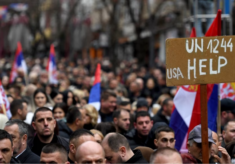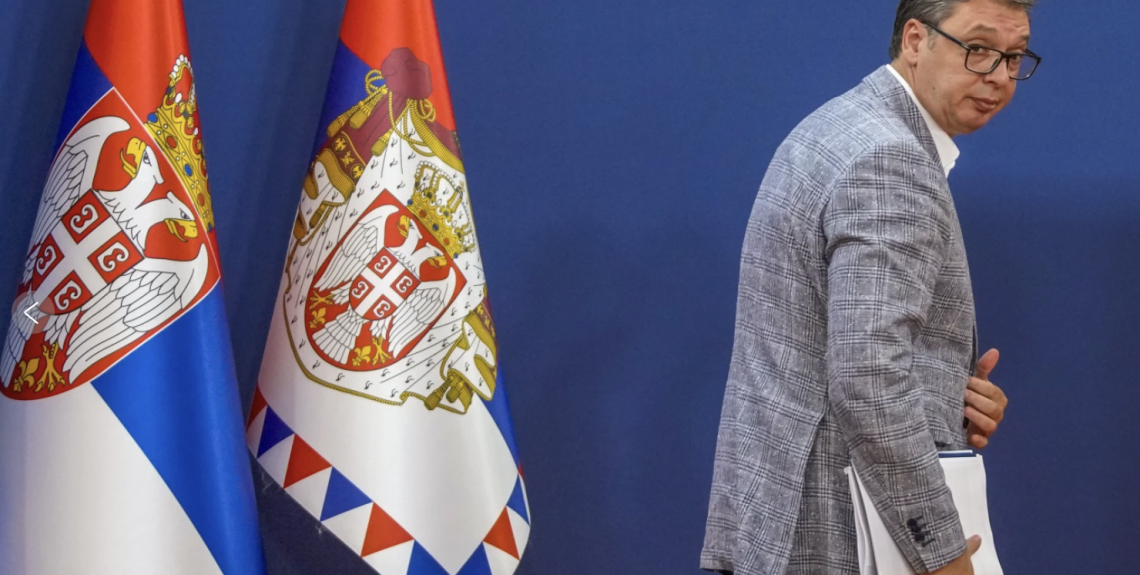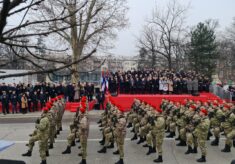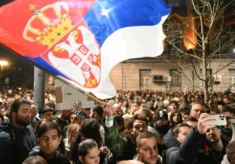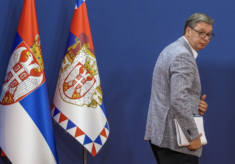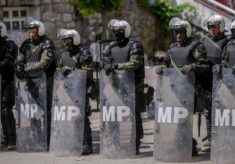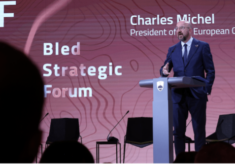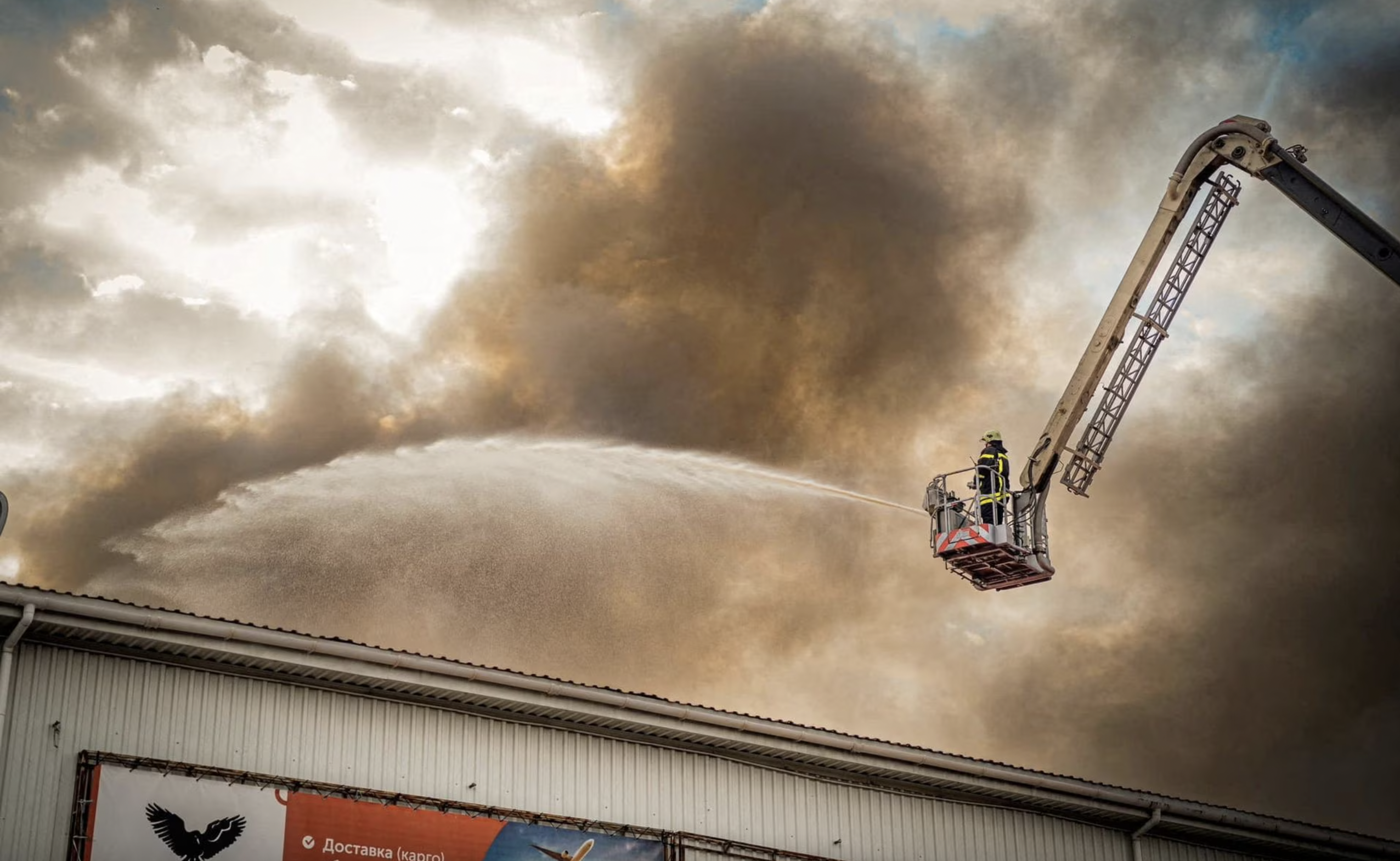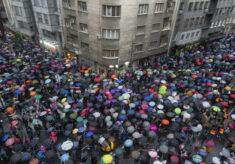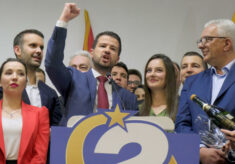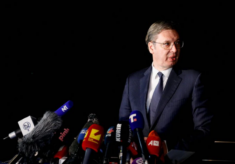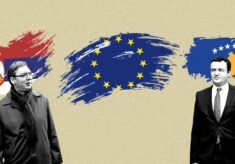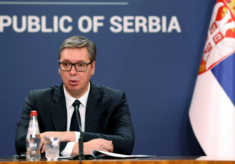The upcoming early parliamentary elections in Serbia, set for the 17th of December, alongside local elections, carry significant importance for the nation’s political landscape and governance, and for the entire region, taking into account the importance of Serbia in the Balkans.
The elections, triggered after months of street protests organized by several opposition parties, occur at a crucial moment, with Serbia facing pressure from the West to engage in talks with Kosovo aimed at achieving a lasting ‘normalization’ agreement. Furthermore, the vote unfolds in the aftermath of a serious incident in the north of Kosovo, the Banjska incident. Additionally, Belgrade is under EU scrutiny, as the Balkan country has yet to enforce sanctions against its traditional ally, Moscow. Russia staunchly supports Serbia’s position of not recognizing Kosovo’s independence on the global stage and is the major supplier of gas for Serbia.
On November 1, President Vucic officially declared the scheduling of snap parliamentary elections in December. Before this announcement, Vladimir Orlic, the Speaker of the now-dissolved National Assembly, had announced the snap elections in 65 cities and municipalities throughout Serbia, including the capital city of Belgrade, where a one-fifth of the entire population resides.
The central themes of both the ruling party and the opposition campaigns are crucial issues for the country, such as inflation — an overarching concern in the country — alongside the rapidly decreasing standard of living amidst soaring food prices. The situation in Kosovo will also be a key point of debate, with the Serbian society deeply split about how to solve the issue.
Although not a candidate for any position, Vucic will serve as the prominent figurehead for his Serbian Progressive Party (SNS), presenting himself through the SNS once more as the sole leader capable of improving the lives of Serbs, fostering economic growth and safeguarding Serbia’s territorial integrity by resisting foreign pressure to recognize Kosovo. Currently, no other political figure looks capable to challenge Vucic’s dominance in the political scene.
While the coalition-building process is still in progress and the official lists are not yet finalized, it is evident that the primary contender in the upcoming elections will be the SNS, that ascended to power in 2012. Despite a recent relative decline in support among the electorate, Vucic’s party is expected to secure a comfortable majority in the new Parliament. According to a survey conducted by Nova Srpska Politicka Misao (NSPM, New Serbian Political Thought), the Progressive Party is projected to receive approximately 39% of preferences on the 17th of December. This marks a significant decrease compared to the 2020 elections, that were boycotted by the opposition and saw the SNS coalition securing 63% of the vote. It is also lower than the 2022 elections, where the Progressives garnered more than 44% support. The traditional allies of the Progressive Party, such as the Socialist Party led by the current Serbian Foreign Minister Ivica Dacic, are expected to secure 8% of preferences.
The most prominent contender against the SNS is expected to be the ‘Serbia Against Violence’ coalition, a heterogenous alliance formed by various pro-EU, liberal, and environmentalist parties. This coalition emerged in the wake of widespread protests following the tragedy at the Ribnikar elementary school in Belgrade and the surrounding villages of Mladenovac in May 2023 (a series of shooting massacres in schools). According to NSPM, the parties within this ‘anti-Vucic’ coalition could secure up to 26% of the national vote and potentially gain control over Belgrade, a major blow to Vucic.
Other opposition parties, particularly those aligned with nationalist and right-wing ideologies, will most probably run independently. Currently, two coalitions have been officially registered: one comprises Zavetnici (Oath keepers) and Dveri (Doors), prioritizing Kosovo as part of Serbia in their campaign, while the other consists of the New Democratic Party of Serbia and the Movement for the Restoration of the Kingdom of Serbia.
Notably, the December elections are set to take place once more in an environment where key media outlets are indirectly or directly influenced by the governing authorities, and members of the opposition face restricted access to mainstream media.
In summary, the forthcoming elections in Serbia carry substantial implications for the nation’s political dynamics. While there are indications of a probable victory for the Serbian Progressive Party, the aftermath of the possible new triumph is anticipated to bring broader ramifications. There is a prevailing opinion among analysists that, in the event of a successful outcome, President Vucic might opt to strategically defer the establishment of a new government for several months. This calculated delay is viewed as a tactic to stall the dialogue with Pristina, intentionally impeding progress and postponing any potential resolution of the Kosovo issue and on sanctions against Russia for months.
